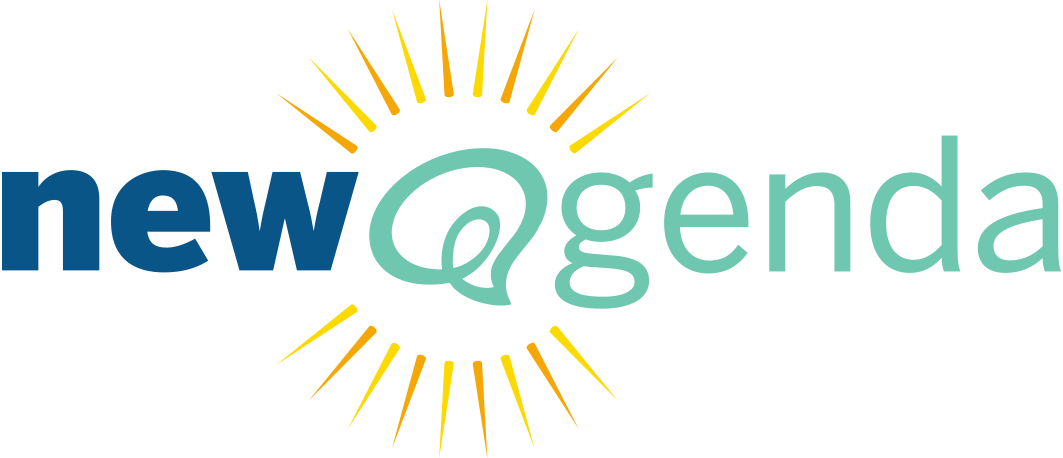Exploring the link between executive function skills, emotional regulation, stress, and self-esteem—and how coaching supports meaningful change.
When people think about mental wellness, they often imagine therapy, self-care, or medication. But there’s one crucial area that is often overlooked—and yet deeply intertwined with mental health: executive function skills.
At New Agenda, we work with students, professionals, and families who are often surprised to discover how challenges like procrastination, disorganization, or forgetfulness are not just “bad habits”—they’re tied to brain-based skills that, when underdeveloped or inconsistent, can have a significant impact on emotional well-being.
Let’s explore how executive dysfunction contributes to mental health struggles—and how coaching helps build the skills and confidence needed to feel better and function better.
What Is Executive Dysfunction?
Executive function is the set of mental skills we use to plan, prioritize, manage time, organize tasks, regulate emotions, and stay flexible to allow problem solving, when things don’t go as planned. Executive dysfunction refers to the breakdown or underdevelopment of these processes, and it shows up in everyday life in ways that are easy to misunderstand:
- Missed deadlines or constant last-minute scrambling
- Chronic procrastination despite good intentions
- Difficulty starting or completing tasks
- Emotional outbursts or shutdowns during challenges
- Trouble transitioning between tasks or plans
- Disorganized thinking or physical clutter
- A sense of being “stuck” even when capable
It’s not about laziness. It’s not about not caring. It’s about the brain’s self-management system struggling to do its job—and the ripple effects can be overwhelming.
The Mental Health Impact of Executive Dysfunction
Executive dysfunction doesn’t just make it hard to stay on top of homework or work deadlines—it can slowly erode emotional wellness. Here’s how:
Emotional Dysregulation
When executive skills are weak, people often struggle to manage frustration, disappointment, or change. Small setbacks can feel huge. Emotional reactions can be intense and difficult to recover from. Without tools for shifting perspective or calming the mind, people are left feeling reactive and out of control.
Low Self-Esteem
People with executive dysfunction often blame themselves—believing they’re lazy, disorganized, or not trying hard enough. This internalized shame chips away at self-confidence, especially when they see peers succeeding more easily. The result? A painful cycle of self-doubt, avoidance, and decreased motivation.
Chronic Stress
The feeling of constantly being behind, forgetting things, or falling short of expectations creates a near-constant undercurrent of stress. Over time, this stress becomes chronic, leading to burnout, anxiety, or physical symptoms like fatigue and sleep disruption.
How Executive Function Coaching Supports Mental Wellness
The good news is: these skills can be strengthened, and coaching provides a structured, supportive environment for change.
✅ Skill Building and Strategy Development
Executive function coaching helps clients identify which specific skills are getting in the way—then builds practical strategies to support task initiation, time management, planning, organization, and more. This targeted skill-building reduces chaos and increases a sense of control.
✅ Cognitive and Mindfulness-Based Tools
We integrate metacognitive and mindfulness strategies that help clients understand how their brain works—building self-awareness and emotional regulation in real time. Clients learn to pause, reflect, and respond intentionally, rather than reactively.
✅ Strength-Based Support
Coaching focuses on what’s working, not just what’s broken. Clients begin to see themselves as
capable, not deficient—developing a growth mindset and the ability to bounce back from
setbacks.
✅ Reducing Stress Through Structure
By creating systems, routines, and external supports, clients experience less daily overwhelm. Tasks become manageable. Days feel more predictable. The mental load lifts, allowing for more energy, better mood, and improved focus.
✅ Improved Self-Esteem
As clients begin to meet their goals—big or small—they start to feel proud of themselves. They see progress. They rebuild confidence not just through pep talks, but through real, measurable wins.
Final Thoughts
Executive dysfunction doesn’t always come with a mental health diagnosis, but it can have a very real impact on how a person feels, functions, and sees themselves. When we ignore these underlying skill gaps, we miss an essential part of the mental wellness puzzle.
At New Agenda, we believe that supporting executive function is about more than getting things done—it’s about helping people feel calm, competent, and in charge of their own lives.
If that resonates with you or someone you care about, we’re here to help.






